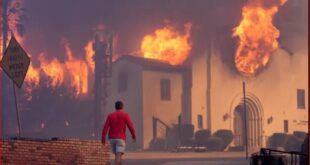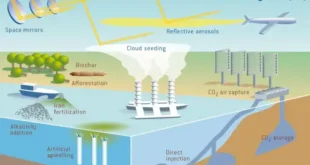Dr.Seema Javed
 Today, the Vatican has called for an international treaty that tackles the climate crisis at its source: fossil fuels. The call builds on the Vatican’s calls for fossil fuel divestment and new policies for investments in “a more just and sustainable world”.
Today, the Vatican has called for an international treaty that tackles the climate crisis at its source: fossil fuels. The call builds on the Vatican’s calls for fossil fuel divestment and new policies for investments in “a more just and sustainable world”.This endorsement reinforces the global momentum around the proposed Fossil Fuel Non-Proliferation Treaty. Cardinal Czerny delivered Pope Francis’ Message for the World Day of Prayer for the Care of Creation.
The treaty recognizes that fossil fuels have contributed to 86% of CO2 emissions in the past decade alone. Despite this, governments are still planning to produce more than double the amount of fossil fuels consistent with a 1.5-degree trajectory by 2030, and 10% more than their own climate pledges. Such a treaty could close loopholes when it comes to fossil fuel production and serve as a complement to the Paris Agreement, while helping fulfil its aims of keeping warming below 1.5C.

The policy proposal are now supported by 101 Nobel laureates, 3,000 academics, a growing interfaith group of religious leaders, 320 parliamentarians, thousands of youth activists, more than 1,500 civil society organizations and over 60 cities including London, Paris, Amsterdam, Sydney, Los Angeles, Barcelona, Toronto and Geneva.
Cardinal Michael Czerny, Prefect of the Dicastery for Promoting Integral Human Development, said: “ The planet already is 1.2°C hotter, yet new fossil fuel projects every day accelerate our race towards the precipice. Enough is enough. All new exploration and production of coal, oil, and gas must immediately end, and existing production of fossil fuels must be urgently phased out. This must be a just transition for impacted workers into environmentally sound alternatives.”
The Cardinal’s message builds on Pope Francis’ Message for the World Day of Prayer for the Care of Creation, in which the Pope “ask[s] the great extractive industries…to stop destroying forests, wetlands, and mountains, to stop polluting rivers and seas, to stop poisoning food and people” and calls for “responsible cooperation between all nations” in fulfilling the goals of the Paris Agreement.
 Jubilee Post News & Views
Jubilee Post News & Views





